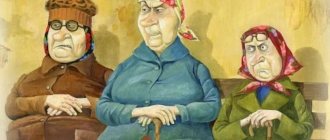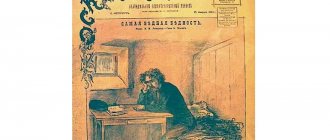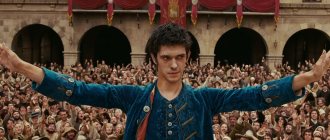- Essays
- 11th grade and Unified State Exam
- The influence of a book on a person
Literature, over time, loses its popularity. Nowadays it is becoming increasingly difficult to meet a person who reads books, and people who live entirely by literature are extremely rare. And now, more than ever, the question is relevant: “What influence do books have on a person?” You can think about this question for a very long time.
What is a book? A book is the author’s thoughts that are stored on paper. This phrase may make you think about finding your own thoughts and writing them down on a piece of paper.
Of course, writing books is not given to everyone; some people have a rare gift of writing, only their stories stand out from the rest. This is due to the fact that they cannot correctly formulate their thought in order to present it to others.
Thinking is a very important process that can be very long and requires perseverance and the necessary concentration. If you approach the thought process from the right side, then it may not be easier than physical labor, but even more difficult. Errors in the field of logic, analysis and incorrect worldview indicate that many people are simply not accustomed to think intelligently, which is due to the lack of literature in their lives.
Reading books, not necessarily fiction, allows you to acquire and develop a culture of thinking. The book can even be the most primitive - a short story in which only a couple of characters participate. Even such a small work is considered intellectual work and can carry a certain meaning. After reading the book, the reader is presented with a general picture. Then the person thinks it over and draws some conclusions, often similar to those that the writer wanted to convey, however, they may differ.
A book is an excellent simulator for the mind; it allows you to assimilate the thoughts of another person (the author), as well as improve concentration and attention to your own. It happens that a book creates some associations with other thoughts that are not related to the plot. These associations contribute well to the development of imagination and fantasy, and also help to find other ways to solve problems that were previously inaccessible.
Sometimes it happens that a book is so addictive that the reader pays special attention to the thoughts of the characters and the events taking place in the story. A person begins to reflect with special concentration on the topics proposed in the plot. This is another training of consciousness. Because, at the moment of thinking about the plot, a person learns to independently think about some deep questions.
In general, the book teaches you to think correctly and improves your imagination. Improves the spiritual and cultural development of a person.
What if…
So let's imagine that all the books suddenly disappeared. Both paper and electronic. There are still articles on websites, Wikipedia, videos, everything except books.
I suspect some people won't notice this at first. But the first to feel the discomfort, of course, will be the workers of libraries, bookstores and those who constantly read. It’s hard not to notice the suddenly empty shelves. Next will be teachers, schoolchildren and students. Try to teach a medical student from YouTube videos. Immediately the question is: will you go to such a doctor?
Perhaps this will work as long as there are teachers with a full stock of knowledge. But there are still no books. Children will have to tell fairy tales from memory or invent them.







